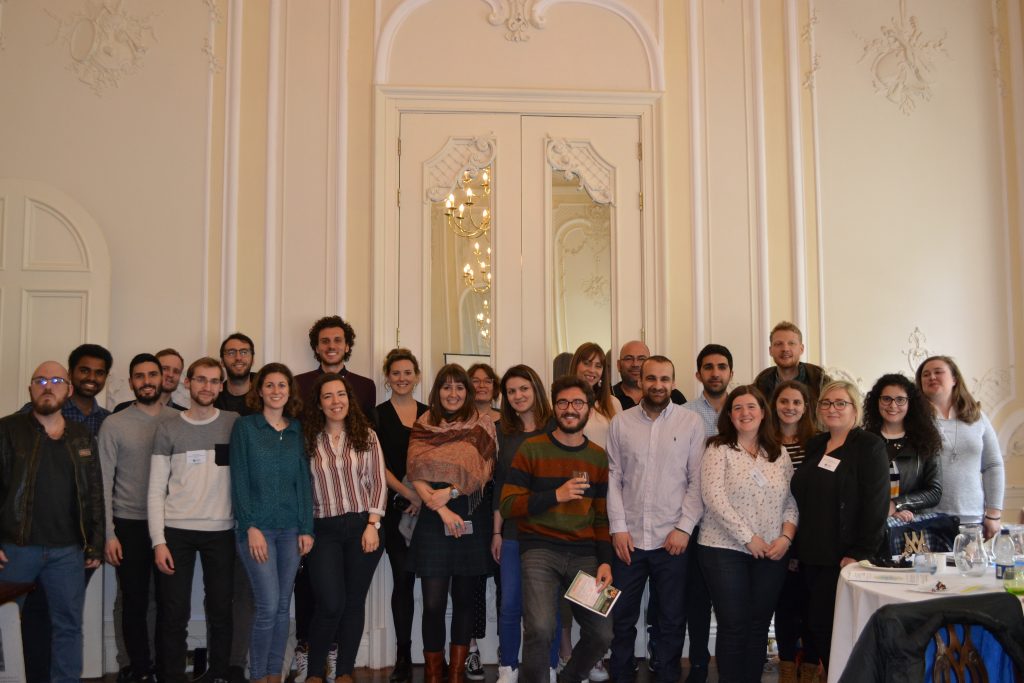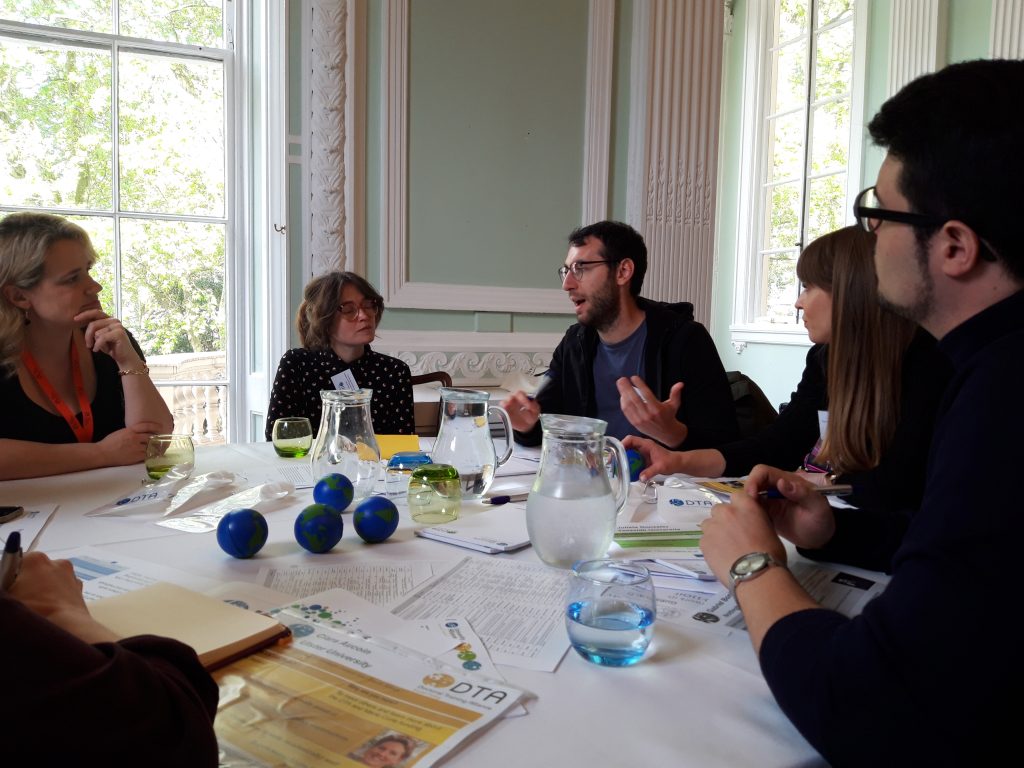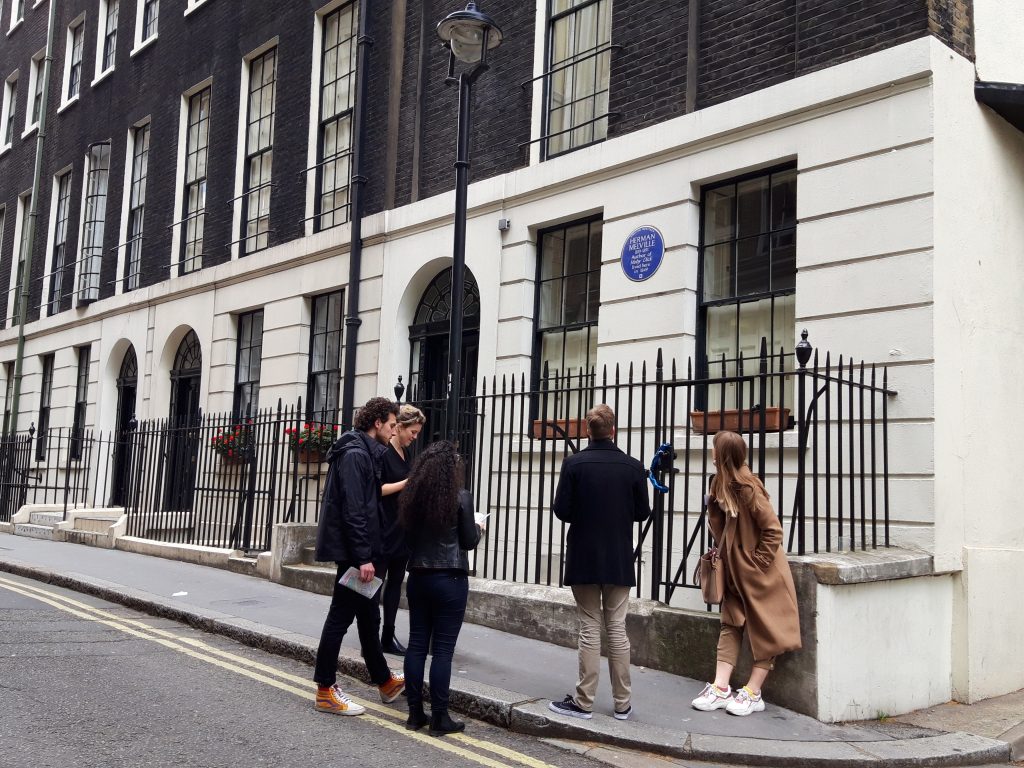Last week saw the first ever Spring School run by University Alliance’s Doctoral Training Alliance (DTA). In Mental Health Awareness Week, our new Communications Officer Matilda reflects on the importance of peer support for doctoral researchers.

A flagship programme for University Alliance, the DTA is a funded doctoral training programme, essentially an applied research programme which reflects the needs of industry and society. It provides students with a network of researchers, academics and industry professionals, as well as a variety of compulsory and elective training opportunities, giving them support during their doctorate and the preparation required for employment following it.
At the start of their journey, our DTA students are brought together with the rest of their cohort to be formally welcomed to the programme and introduced to the peers who will support them throughout their three years. This is the first time we have run such an event in the spring, as this year we welcomed our first DTA3 doctoral researchers, part funded by a prestigious €6.5 million grant from the Marie Skłodowska-Curie PhD Fellowship programme (MSCA). Having recently joined University Alliance, this was also the first time I have been able to attend a school to welcome new students.
Partly due to its links to the European Union, DTA3 targets international students, making the Spring School a thoroughly global event. Over the two days, I met and spoke to students from fourteen countries across the world, each bringing a different perspective to the PhD process and their research, which they were able to share with one another.
I was also struck by the interdisciplinary nature of the event. As a central precept of the MSCA and the DTA, encouraging researchers to look beyond their disciplines was a hugely important element of the Spring School. Doctoral researchers attended from each of the DTA’s three core research areas, Applied Biosciences for Health, Energy and Social Policy, and topics varied as widely as Alzheimer’s and night club culture. And yet, through networking sessions, students were able to find connections and possibilities for collaboration within and across their disciplines.
I spoke to Cristiano Pedroso-Roussado, on the Biosciences programme, about how useful this was for him “The networking effects from these kind of events are amazing, you can see the interfaces between your subject and other projects not only within your biosciences programme but also in other programmes”

The DTA is able to offer these networking benefits to academic supervisors as well. Invited alongside their researchers, the supervisors of our new recruits attended their own schedule of events including a session on connections and collaboration, allowing them to forge links with colleagues from across University Alliance core and programme members sparking future potential joint projects.
Across the two days, the Spring School also provided our new doctoral researchers with a practical introduction to the DTA and undertaking a PhD more generally. This included interactive sessions on health and wellbeing, research ethics, and how to get the most out of your supervisor. This kind of support is at the centre of the DTA’s offer to students, making sure that whether they need advice on referencing or managing their mental health, they always have someone to turn to.
Myself and the attendees also heard from some of the DTA alumni on their top tips for thriving as a doctoral student. They highlighted the importance of peer support and using the readymade network that the DTA provides. Julietta on the Energy programme told me why this was one of the most important elements of the programme for her; “What I like about the DTA is being part of a cohort of people from different backgrounds, from different places, that are doing different things, but at the end of the day we are all doing the same thing. So I like having this support”

Because of this, despite all the practical advice they received, last week’s event was really about bringing the students together to get to know one another. Both days were topped off with a social event; an informal dinner and drinks reception and a treasure hunt around Westminster followed by afternoon tea. I know, doing a PhD can risk being a lonely and isolating experience but the DTA tries to combat this by bringing doctoral researchers together at least twice a year. These events are an opportunity to meet colleagues and make new friends, as I did at the Spring School, and hopefully these are the people who will help our researchers succeed during their time with us.
It was a pleasure to meet the new members of DTA3 last week and I wish them all the very best of luck!



